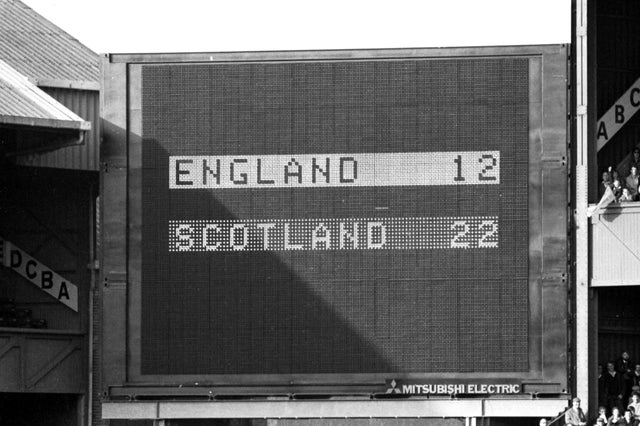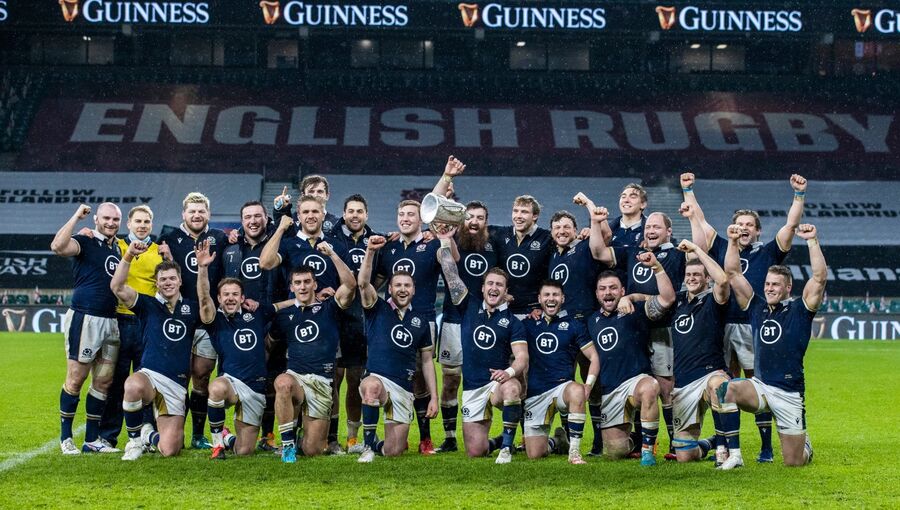Looking Back: The 1983 Calcutta Cup
05th March 1983. Marvin Gaye is top of the New Zealand charts with ‘Sexual Healing’. Robert Muldoon is the Prime Minister. It’s Dan Carter’s first birthday.
On the other side of the world, Scotland travelled to Twickenham for their Five Nations encounter. They had been visiting the home of English rugby since 1911 and only had three victories to show for it, in 1926, 1938 and 1971. England had entered the Championship as favourites, but lost at home to France in their opening match, before coming away from Cardiff with a 13-13 draw against Wales. This was Scotland’s final match of the Championship, having already lost to Ireland, France and Wales (albeit with a combined margin of just 10 points).
Roy Laidlaw, the talented half back, was replaced as captain for the match by prop Jim Aitken – although Laidlaw retained his place in the team. First five Jim Rutherford resumed his partnership with Laidlaw, having been injured for the first three matches. English half back and captain Steve Smith was not so lucky – initially. Smith was dropped as captain and from the squad completely after the draw at Cardiff Arms Park, replaced by Nigel Melville, and with Number 8 John Scott taking over the captaincy. Melville picked up an injury in training however, with Smith then leapfrogging the other half back in the squad (Nick Youngs) to start the game against Scotland.
The first half ended 9-9. England’s first five John Horton opened the scoring with a drop goal after just two minutes, before England’s Dusty Hare and Scotland’s Peter Dods kept the scoreboard ticking over with two and three penalties respectively. In the second half, Laidlaw and second row Tom Smith added a couple of tries for Scotland who finished up winning 22-12.
It was hard to imagine that another 38 years would pass before they would taste victory at Twickenham again. Scotland achieved Grand Slams in 1984 and 1990, as well as a share of the Championship (with France) in 1987, before England won nine consecutive Calcutta Cup matches between 1991 and 1999. Since 2000, Scotland have won just four Calcutta Cup matches before today (2000, 2006, 2008 & 2018), all at Murrayfield, with two draws, the most recent being at Twickenham two years ago. As we all know, international sporting events in 2021 are somewhat different. With each side in the Six Nations playing each other once per season, home advantage has often been an important factor. For example, chances of an Irish Championship/Grand Slam are generally more likely in the seasons they play England and France in Dublin, rather than the following year where they have to travel to London and Paris. But this year, those capacity crowds are absent and with it, a significant amount of that home advantage.
Scotland travelled to London aware that the spine of the English team – hooker Jamie George, lock Maro Itoje, No 8 Billy Vunipola, first five Owen Farrell and fullback Elliot Daly – have been inactive for two months, restricted by their club Saracens’ lack of rugby following relegation to English rugby’s second tier. With a relatively inexperienced front row with three experienced props absent, England proceeded to concede four penalties in the first five minutes. Scottish first five Finn Russell took advantage of one, to see the visitors take an early 3-0 lead from a penalty kick. The pressure exerted by Scotland in the first half saw them extend their lead with a try in the 30th minute from winger Duhan Van der Merwe, before Farrell slotted two late first half penalties to see the gap reduced to 6-8 at half time.
A second Russell penalty kick in the 49th minute was the only time the scoreboard was updated in the second half, but that was enough. The other match stats tell a similar story. Scotland had 70% territory and 65% possession. They conceded 6 penalties, compared to England’s 15. Scotland made 95 tackles versus England’s 173. This was the right result. In the build up this week, England Head Coach Eddie Jones had said:
‘For Scotland this is their most important game of the year, they talk about it all the time. That’s a huge expectation for them and maybe, with 15 minutes to go in the game, the expectation is going to get pretty heavy for them.’
After defeat he said:
‘They played tough, edged the set-piece, won in the air and we just could not get in the game. We were not at the races today.’
Former Scotland scrum-half Andy Nicol said after the full time whistle:
‘That is one of the best performances Scotland have ever put in. There was creativity, physicality, good kicking and an intensity and togetherness – the win was fully deserved. That is as dominant a performance from Scotland against England there has been for over 30 years. It was outstanding, an unbelievably good 80-minute performance.’
38 years of hurt forgotten in 80 minutes. Surely it won’t be another 38 years until the next win – although, who would have predicted that while singing along to Marvin Gaye all those years ago.
Follow Aiden on Twitter


